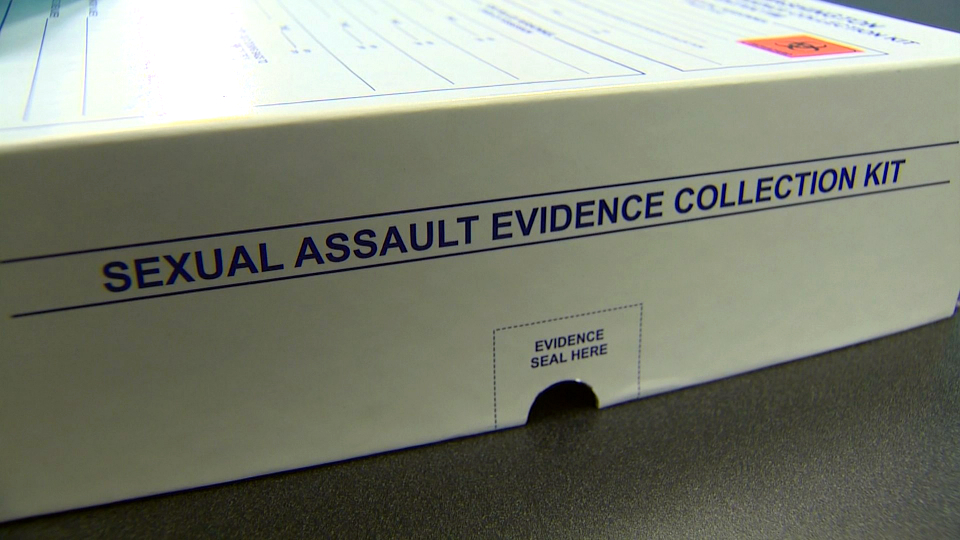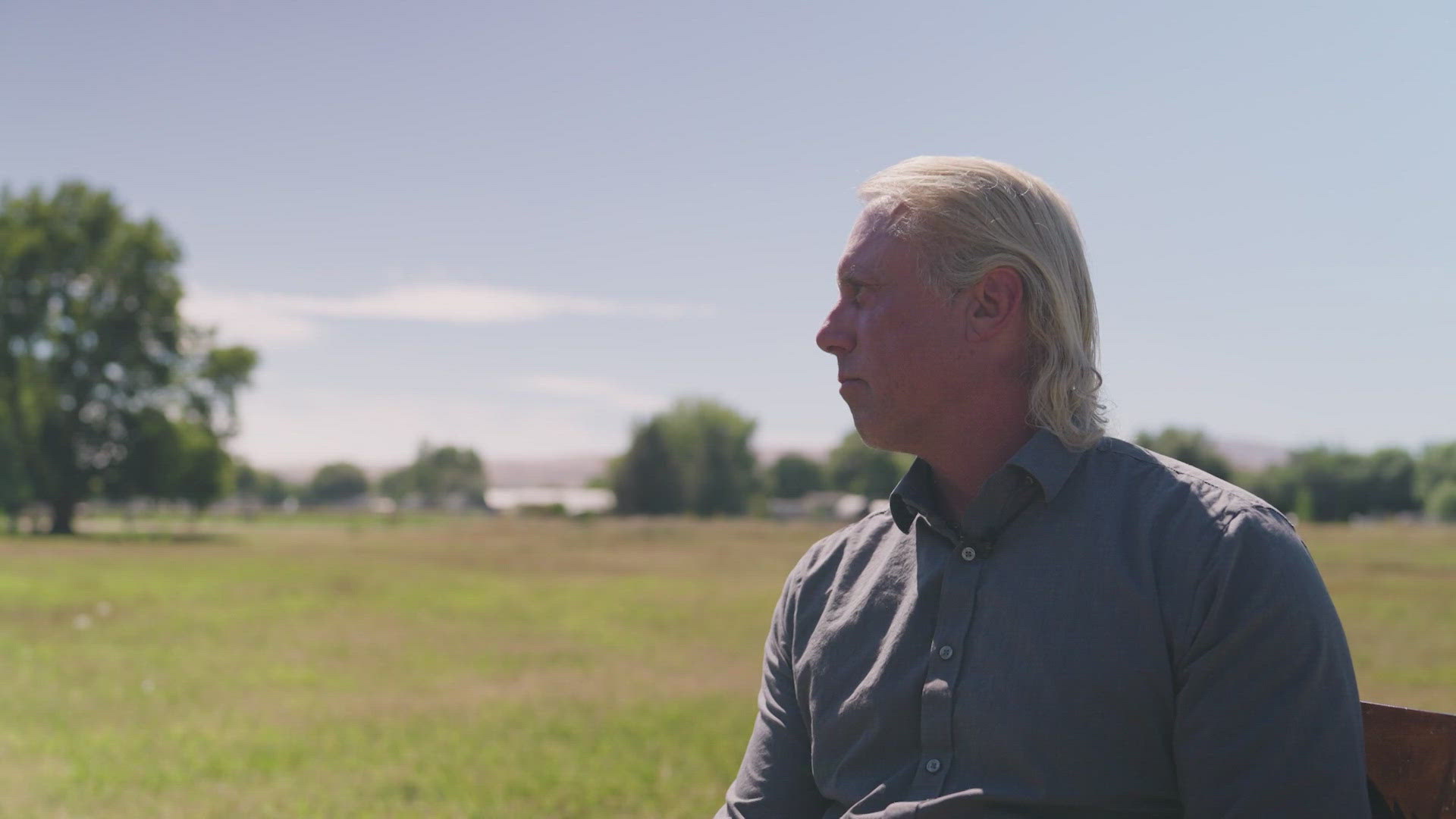Rape victims in Washington state can rest assured the evidence collected in their cases will actually be tested beginning July 1, when a new law goes into effect requiring police to send rape kits to the state patrol crime lab within 30 days (with the victim's consent).
But that law only helps victims who can get a rape kit done, and the KING 5 Investigators found that can be a big challenge. Few hospitals offer rape kits, and that can prove highly problematic for collecting time-sensitive evidence from victims.
No one knows that better than a 29-year-old Seattle woman, who said she was drugged and raped in April last year.
She said she is still recovering from the experience, was afraid to leave her house for weeks and had to take time off work as a Seattle teacher.
"I think it's way worse than people think. Most women think they would just get over it. That's not realistic. It destroys your sense of self confidence, it destroys your ability to trust your own judgment. It destroys the faith that you have that people are good," the woman said.
![Rape kit[ID=28121187] ID=28121187](http://www.gannett-cdn.com/-mm-/27cf82c7f55c21c081a55b2975bc5a0b1fedb6ef/c=285-0-915-538/local/-/media/2015/05/28/NWGroup/KING/635684404304764309-rape-kit-box.JPG)
"I started talking to this guy, I went to the restroom, left my drink and 15 minutes later, I barely remember anything," she said.
Her memory is foggy, but she said she has some vivid snapshots of that night.
"I remember walking down the street with him and specifically telling him that I did not want to have sex with him. I remember being on his bed with my feet bound together. And then I remember pain and stabbing sensations, then saw a pool of blood and ran out the door," she said.
The teacher later told police she believed she'd been drugged and raped.
After she ran out of the man's apartment, she said she wandered around, dazed and traumatized. She eventually called a friend who picked her up and drove her home.
Hours later, the woman drove to the closest emergency room -- Swedish Medical Center in Ballard -- where she said she was deeply disappointed by their response.
"They told me they do not provide rape kits there, they did not find my injury and they sent me out the door," she said.
In a written statement, director of the hospital's emergency department told KING 5: "Similar to other hospitals in King County, Swedish does not have Sexual Assault Nurse Examiners (SANE) onsite. SANE nurses work with hospitals independently and specialize in forensic exams; evidence they collect is used in potential sexual assault cases. Harborview is the only hospital in King County with practicing SANE nurses onsite." He said at the time the woman came to the hospital, the "protocol for sexual assault victims was to refer patients to Harborview for care should the patient wish to do so."
The teacher said she still felt too traumatized and dazed to drive across town to Harborview at that time. She said the personnel at Swedish's Ballard hospital offered to send her in an ambulance, but "when I told them I couldn't afford it, they shrugged their shoulders and I left," she said.
Few options for victims
What happened to this woman isn't unique. There are nearly 90 hospital emergency rooms across the state, according to the Washington State Hospital Association. Yet only a fraction are staffed with the specially trained nurses (sexual assault nurse examiners or forensic nurse examiners) who do rape exams and collect evidence in rape kits.
Susan Johnson is past president of the Washington Chapter of the International Association of Forensic Nurses (IAFN). She said most hospital emergency rooms are not staffed to do rape kits, estimating that only 10 percent of the emergency rooms in Washington have a nurse on staff or on call who can conduct a rape exam. Nationally, that number is 13 percent.
IAFN is advocating to have a forensic nurse examiner in every emergency room in the country to examine rape victims and collect evidence that may be used later by police and prosecutors. Johnson said it's important that women reporting sexual assault not be turned away at the first place they come for help.
"They want to be believed. They're coming there with everything that they have just to get into the emergency room. And then to be told that they can't be helped there, it just takes a lot out of them emotionally to have to go someplace else," said Johnson.
Johnson said some rape victims give up. Others will drive to another hospital to get a rape kit done, but sometimes that means a long drive.
"In King County, patients can travel anywhere from 30 to 40 minutes, when you're talking about Eastern Washington they can go up to an hour and a half to go find a trained nurse."
And all the while, the clock is ticking for collecting time sensitive evidence.
Even so, the Washington State Hospital Association does not support having a forensic nurse in every hospital emergency room.
"It is worth it to go pursue quality sophisticated, specialized care," said Mary Kay Clunies-Ross, the group's spokesperson. "Because it's not just the training, it's the experience that matters. You want somebody who's good at it and in health care experience really matters. If you're looking for a facility or physician to do something like a knee replacement, what you would ideally know is how many knee replacements does this doctor do?"
Clunies-Ross said victims benefit from having their rape kit collected by an experienced nurse who does them regularly.
"Because what you want is for the forensic evidence to be protected and saved so that if the time comes that you can put somebody in jail, that nothing has gone wrong before that," she said.
There are seven hospital emergency rooms in Seattle. The ER at Harborview Medical Center is the only one staffed with a forensic nurse around the clock to conduct rape exams and collect evidence in rape kits.
The Seattle teacher drove herself there, but not until the next day, after sleeping, taking a shower and calming down. She said she felt too traumatized to do it sooner.
According to her medical records at Harborview, she was examined by two doctors and a Sexual Assault Nurse Examiner, who documented bruises on her thighs and a cut in her vagina that was "concerning for a foreign object."
But the delay in getting the rape kit done had a big impact on her quest for justice, according to Mark Larson of the King County Prosecuting Attorney's Office.
"An exam wasn't done at least until a full day later when really valuable evidence gets lost. For us in this case that really makes prosecution enormously difficult," Larson said.
Larson said the alleged attacker claimed the sex was consensual. To charge rape in this case, he said prosecutors would have to prove the teacher was forced, or too incapacitated to give consent.
But the rape kit was collected too late to nail down the timing of the drug found in her body -- an antidepressant she said she didn't take knowingly. The drug is one that can cause memory loss when mixed with alcohol.
"We had no way of saying how or under what circumstances that drug may have been put into her system," Larson said.
Also missing: any evidence that might have linked her alleged attacker to other crimes when put into a national DNA database.
"The rape kit was examined. No male DNA or profile was found, but bear in mind the rape kit wasn't collected until the better part of two days after the event," Larson said. Larson said no charges were filed in the case because there was insufficient evidence to prove beyond a reasonable doubt that a crime had occurred.
State Rep. Tina Orwall (D-Des Moines) sponsored the new law that says every rape kit must be tested moving forward. The law also establishes a committee to help victims get help faster.
"We don't want a victim to have to get in a car and have to travel 40 minutes or not go in and have the rape kit conducted. There's no justice for that victim. There's no ability to catch a serial rapist when you aren't helping them at that moment," Orwall said.
The changes could help future victims get help. But the Seattle teacher is left wondering why she endured the five-hour exam.
"It's degrading and humiliating," she said. "It would be nice to know that when you lay on this bed in this room in front of all these people and they swab and take photographs of your naked body, that the evidence was for something."
A few months after the teacher went to Swedish Ballard to report being raped, the hospital changed its protocol.
"Swedish began offering the option for patients who were victims of a sexual assault to be transferred to Swedish First Hill for a forensic exam during the summer of 2014. This service was added to ensure we continue to provide continuity of care and increase access to the best possible care and support for our patients," said a hospital spokesperson.
Swedish First Hill still doesn't have a forensic nurse on staff, but has arranged for Harborview's nurse examiner to come to the Swedish First Hill Emergency room to conduct rape exams when needed.
In August, 2014, Harborview also expanded that service to cover Seattle Children's Hospital, according to Terri Stewart, the coordinator of the Sexual Assault Nurse Examiner Program at Harborview. Stewart said that later this year, Harborview plans to expand its service to cover the UW Medical Center, Northwest Hospital & Medical Center and Valley Medical Center in Renton.
East of Seattle, Evergreen Medical Center is the only hospital in King County to have a forensic nurse examiner on call around the clock to conduct rape exams and collect rape kits.


